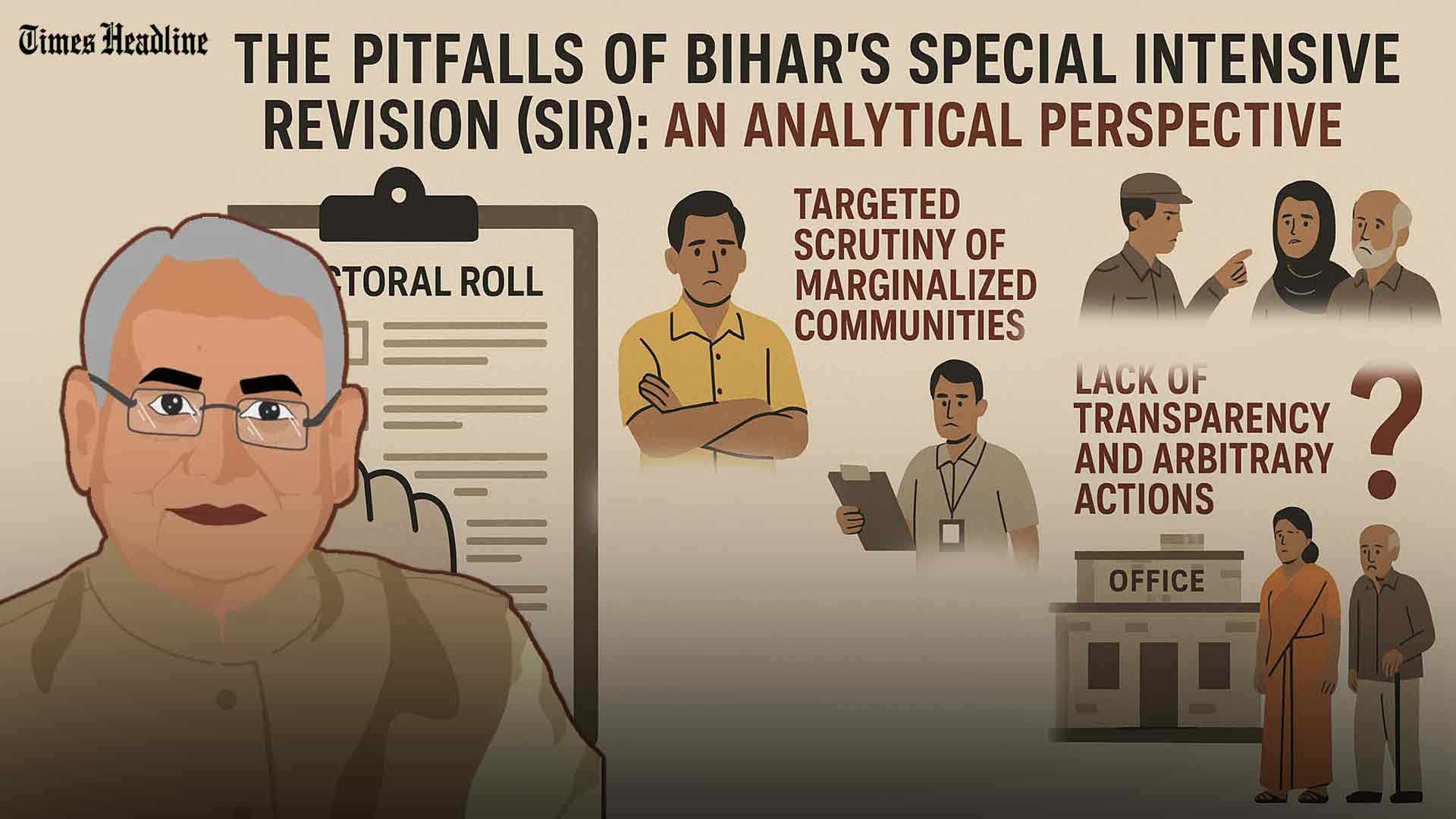Reading time : 2 minutes
- Dr. Shujaat Ali Quadri
The Special Intensive Revision (SIR) drive initiated by the Election Commission of India (ECI) in Bihar has recently come under scrutiny. Intended as a mechanism to “clean” and update the electoral rolls with accuracy and integrity, the SIR process has instead sparked controversy, especially among marginalized communities. Accusations of discriminatory targeting, procedural opacity, and political misuse have raised serious questions about the constitutional integrity and democratic spirit of this exercise.
Understanding the SIR Process
The Special Intensive Revision is an extraordinary process over and above the routine summary revision of electoral rolls. It typically involves door-to-door verification of voter identities, deletion of “bogus” or “duplicate” voters, and re-verification of voter documents—ostensibly to ensure the sanctity of electoral rolls.
In Bihar, however, the scope and execution of the SIR drive have deviated from its neutral mandate. The process has disproportionately focused on specific regions, communities, and constituencies, with a noticeable impact on minority and Pasmanda Muslim-dominated areas, raising eyebrows and protests.
Key Concerns and Negative Impacts
Targeted Scrutiny of Marginalized Communities: Many reports and field observations point toward a disproportionate focus on Muslim-dominated localities, particularly urban slums and border districts. Voters from these areas are being asked to provide repeated documentation, even if they’ve been on the rolls for years. This targeted re-verification has led to fears of voter disenfranchisement on communal lines.
Lack of Transparency and Arbitrary Actions: The guidelines for the SIR have not been uniformly applied. In many areas, BLOs (Booth Level Officers) have acted without proper training or oversight, leading to arbitrary deletions or unnecessary duplication of verification. The absence of proper notice, inconsistent documentation demands, and denial of appeals have eroded public trust.
Political Weaponization of Electoral Process: Opposition parties and civil society groups argue that the SIR is being used as a political tool to suppress the votes of communities perceived as anti-establishment. In the run-up to elections, such selective deletions and verification drives can significantly influence outcomes in close contests, compromising the democratic process.
Administrative Burden and Harassment of Citizens: Ordinary voters especially the elderly, illiterate, women, and daily-wage workers—have found the process exhausting. They are made to visit offices multiple times, often without clarity on what documents are needed or why their names have been flagged. This has caused a feeling of state harassment and exclusion, deepening the alienation of vulnerable groups.
Violation of Constitutional Principles: India’s democracy is founded on universal adult franchise and equal treatment under the law. The selective and opaque nature of the SIR process in Bihar appears to violate Articles 14 and 326 of the Constitution, which guarantee equality before law and the right to vote, respectively.
Ground Realities: Voices from the Field
In districts like Kishanganj, Araria, and Purnia where Muslims and backward castes form a significant portion of the electorate there have been widespread reports of:
Genuine voters being struck off the list without notice.
BLOs visiting only Muslim households for re-verification.
Conflicting instructions from local election officials.
Fear among voters about losing their electoral rights.
Local civil society activists describe the process as “a soft form of disenfranchisement,” which undermines electoral justice without needing any formal legislative change.
The Need for Accountability and Reform
The idea of a clean and transparent electoral roll is critical to democracy. But fairness, non discrimination, and due process must be the cornerstones of any such exercise. The current execution of the SIR in Bihar, far from ensuring electoral purity, appears to be deepening social divisions, silencing minority voters, and undermining trust in democratic institutions.
To uphold the integrity of the democratic process, the Election Commission must:
Immediately halt biased verification drives.
Set up grievance redressal mechanisms.
Ensure transparency in deletions and inclusions.
Punish officials engaging in discriminatory or illegal actions.
India’s democracy is strongest when every citizen’s voice is heard—especially those at the margins. The SIR drive, unless corrected, threatens to silence precisely those voices.

